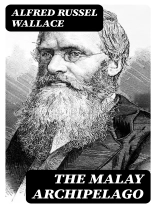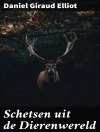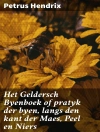In ‘The Malay Archipelago, ‘ Alfred Russel Wallace presents an engaging and meticulously detailed account of his explorations through the diverse islands of Southeast Asia. Written in a vivid and accessible style, Wallace’s narrative combines his observations of natural history with profound reflections on evolution, showcasing the rich biodiversity of the region. This work is not only a travelogue but also a crucial contribution to the scientific discourse of the 19th century, where he laid the groundwork for biogeography and underscored the importance of geographical isolation in species development. Alfred Russel Wallace, a contemporary of Charles Darwin, was a pioneering naturalist and explorer whose travels in the Malay Archipelago profoundly influenced his ideas about evolution and natural selection. His extensive fieldwork, marked by a keen eye for detail, allowed him to collect thousands of specimens and establish connections between species and their environments. Wallace’s unique perspective on the interconnectedness of life and the impact of ecological factors undoubtedly shaped the insights presented in this seminal work. ‘The Malay Archipelago’ is essential reading for both enthusiasts of natural history and those seeking to understand the foundations of evolutionary biology. Wallace’s passion for discovery and his eloquent prose invite readers to explore the complexities of nature alongside him, making this book a timeless treasure that resonates with the spirit of inquiry and adventure.
Despre autor
Alfred Russel Wallace (1823-1913) remains a towering figure in the annals of science, heralded for his independent conception of the theory of natural selection which he co-published with Charles Darwin. A British naturalist, explorer, geographer, anthropologist, and biologist, his intellectual contributions span a vast array of subjects but his work in biogeography and evolutionary biology stands out. In his seminal work, ‘The Malay Archipelago’ (1869), Wallace recounts his extensive fieldwork in the Malaysian, Indonesian, and New Guinean islands, capturing the rich biodiversity and cultural intricacies he encountered during his eight-year expedition. Not merely a travelogue, the book significantly contributed to the field of island biogeography and the study of speciation. Wallace was a prolific writer and his works underscore his keen observational skills and a rigorous scientific inquiry undergirded by a narrative style that made serious science accessible to a broader audience. Notably, it was during his time in the Indonesian archipelago that Wallace formulated his thoughts on evolution, leading to the famed joint publication with Darwin. His work was characterized by an intertwining of empirical data with thoughtful theorization, a balance that earned him widespread respect among contemporaries and successors alike. In addition to ‘The Malay Archipelago’, Wallace wrote extensively, including books such as ‘Darwinism’ (1889), which further expounded on the theory of natural selection. His literary style combined detailed empirical observation with a broader philosophical inquiry, reflecting his deep interest in the natural world and its processes.












